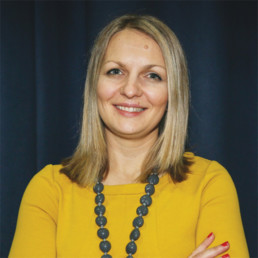
Written by Helena Marsh
Helena is a WomenEd co-founder, mum of three and experienced school and Trust leader. In her ninth year of secondary headship, Helena has also held the role of MAT CEO. An advocate of flexible working, Helena co-wrote the ‘Flexing our Schools’ chapter in the first WomenEd book and has been an active supporter of the Flexible Working Ambassador Scheme and the MTPT Project.
Spending the day among some incredible inspiring women at the ‘Breaking the Mould’ event on 9th March at Milton Road Primary School, Cambridge, was a fabulous way to mark this year’s International Women’s Day.
Hannah asked me to contribute to the event when we met for an after work mocktail in May 2023. At the time, having this little spot of feminist joy to look forward to on the horizon really uplifted me at a particularly bleak moment in my leadership career.
Several months later, I was not disappointed. Featuring amongst a programme of kick-ass women gave me a real sense of personal and professional rejuvenation.
My session, entitled ‘What’s the point of cake if you can’t eat it?’, focused on my experiences, as a mum of three, of gendered perceptions of leadership. In my 15 years as a senior leader, I’ve been conscious of women stepping away from the profession, and their leadership potential, citing selfishness and a pragmatic need to focus on their families, as the reason.
To coin a phrase by Summer Turner, I questioned: ‘Are the boys also worrying about this?’ Do men perceive becoming a dad and maintaining their career as ‘having it all’?
Gender pay gap research reveals that they don’t. The Fatherhood Bonus, in stark contrast to the Motherhood Penalty, rewards men for becoming fathers. While women are stepping down or away to focus on caregiving and accepting the inevitability of this pause/permanent freeze in their professional journey, men are, statistically, enjoying promotion and pay progression when starting a family.
My presentation focused on the factors, institutional, societal and personal, that lead to women feeling as though progressing professionally is not a viable choice once becoming a mum. I concluded that wholesale changes to sector expectations of leaders is necessary. As Jill Berry wisely observes, if having a job and a life isn’t achievable, there’s a problem with the job.
The other inputs to the day complemented this theme. Particularly Niamh Sweeney’s rousing cry to tackle the injustices within the profession that inhibit and preclude. Niamh’s anecdote from her recent trip to the States chimed with many of us in the audience. The audacious goal of winning ‘all the things’ spoke to a refreshing cultural ambition. Meanwhile, many of the other talks highlighted the importance of acknowledging feminine leadership traits and valuing the benefits of diversity in leadership teams.
I left the day reflecting on how often ‘having it all’ is misunderstood for ‘doing it all’. My Mother’s Day stash of gifts that I received the following day from my little ones included various iterations of listing pads. As a fan of organisational stationery, I was chuffed with my haul. However, it did make me recognise how much of my sense of success as a mum and leader is measured through my accomplishment of ‘stuff’. Many women that I have worked with pride themselves on getting all the sh*t done and to an exceptional standard, often at the expense of their personal health and wellbeing.
As I acknowledged in my IWD talk, the weight of the mental load that mums carry, let alone mum leaders carry, is immense. It’s important that having #AllTheThings doesn’t necessitate us doing everything but having our fair share of whatever it is we strive for, whether that’s cake, career development opportunities or childcare responsibilities.

